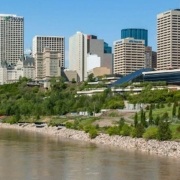Navigating Whistler Airbnb Income Taxation
Introduction
Airbnb has taken the world by storm, and Whistler is no exception. Home to one of North America’s largest ski resorts, this picturesque town is a hot spot for tourists seeking adventure and relaxation. As an Airbnb host in Whistler, you’re probably aware that income earned through short-term rentals is taxable. But do you know how to navigate the complex world of Whistler Airbnb income taxation? Fear not, intrepid host! Our guide will help you make sense of the tax landscape, so you can keep more of your hard-earned cash.
Explore Airbnb Regulations in Whistler.
Whistler Airbnb Income Taxation: A Primer

Getting Started: Registering Your Rental Property
Before diving into tax matters, it’s crucial to ensure your Airbnb is legally registered. Here’s how to get started:
- Obtain a business license from the Resort Municipality of Whistler (RMOW).
- Adhere to RMOW’s zoning regulations for short-term rentals.
- Pay the annual licensing fee.
Now that you’re officially in business, let’s explore the nitty-gritty of Whistler Airbnb income taxation.
Useful link: Business licensing in British Columbia – Airbnb Help Center.
Income Tax Breakdown
As an Airbnb host in Whistler, you’ll need to report your rental income and expenses to the Canada Revenue Agency (CRA). You must report your rental income on Form T776 (Statement of Real Estate Rentals) and include it with your personal income tax return (T1).
Here’s a basic overview of how the income tax system works:
- Personal Income Tax: Your rental income is subject to federal and provincial personal income tax rates, which are progressive in nature.
- Expenses: You can deduct eligible expenses related to your Airbnb, such as mortgage interest, property taxes, and maintenance costs.
GST Guidelines for Airbnb Hosts in Whistler
For Airbnb hosts in Whistler, understanding GST obligations is key. Here’s a simplified breakdown:
When GST Applies: You’re required to register for GST if your Airbnb rental income exceeds $30,000 within any 12-month period.
GST Rate: In British Columbia, including Whistler, the GST rate is 5%.
After Registering for GST: You must:
- Charge this 5% GST to your guests.
- Remit the collected GST to the Canada Revenue Agency (CRA).
Benefits of GST Registration: Even if you don’t reach the $30,000 threshold, you can register voluntarily. This allows you to claim back the GST paid on business-related expenses, potentially lowering your tax bill.
Reporting GST: GST reporting is a separate process from your income tax filing. Accurate records of your rental income and expenses will help you report and remit GST correctly.
Maximizing Deductions & Credits
Deductible Expenses: More Bang for Your Buck
Minimizing your tax liability means knowing which expenses are deductible. Here are some common deductible expenses for Airbnb hosts in Whistler:
- Mortgage interest
- Property taxes
- Insurance premiums
- Utilities (e.g., water, electricity, and gas)
- Repairs and maintenance
- Cleaning and landscaping
- Advertising and marketing
- Professional fees (e.g., accounting and legal services)
Tax Credits: Keeping Your Wallet Happy
In addition to deductions, you may be eligible for tax credits that can further reduce your tax bill. Keep an eye out for these:
- Home Accessibility Tax Credit: If you make accessibility improvements to your property, you could claim a non-refundable tax credit.
- Climate Action Incentive: As a BC resident, you may be eligible for this refundable tax credit, which aims to offset the cost of carbon pricing.

Additional Taxes: MRDT and PST
In addition to income tax responsibilities, Airbnb hosts in Whistler must also manage other tax requirements, including the Provincial Sales Tax (PST) and the Municipal and Regional District Tax (MRDT). The PST, charged at an 8% rate, is applicable to the provision of short-term lodging and other select services within British Columbia. Furthermore, the MRDT, which is enforced at a 3% rate in Whistler, targets short-term rentals specifically (those lasting less than 27 consecutive days) within certain municipalities and regional districts. As a host, you are obligated to collect these taxes from your guests and ensure their proper remittance, aligning with both provincial and municipal tax laws.
To comply with the MRDT requirements, you must:
- Register with the British Columbia Ministry of Finance.
- Collect the MRDT from your guests.
- File MRDT returns and remit the tax collected to the Ministry of Finance.
Check out 5 Things Concerning Airbnb Profitability in Whistler.
Conclusion
Navigating the world of Whistler, Canada Airbnb income taxation can be tricky, but with a little know-how, you can make the most of your rental income. Stay informed, stay organized, and don’t hesitate to consult with a tax professional if you have questions. Happy hosting!
Read The Definitive Guide to Airbnb Income Tax in West Vancouver.












